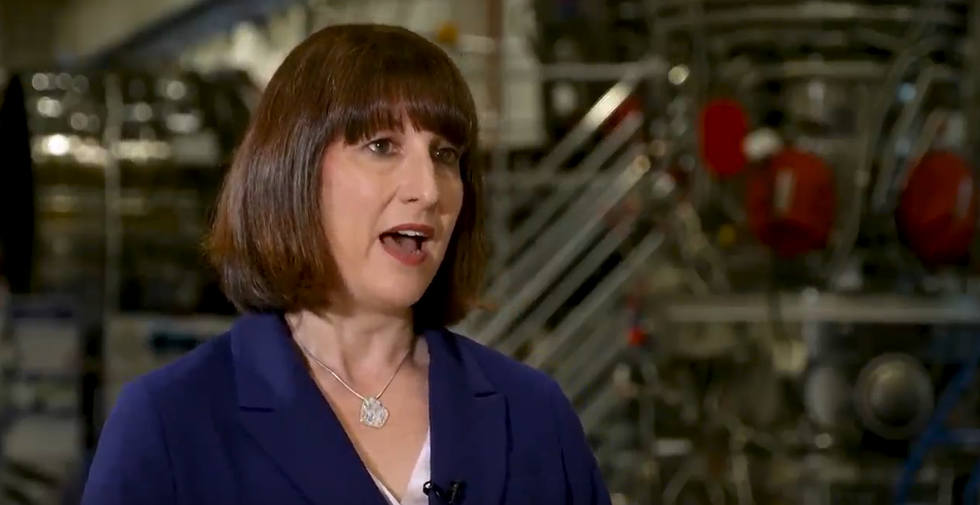Labour needs to come clean to voters about its tax plan, writes Patrick O'Donnell

Reeves and Labour need to come clean about their plans for the economy, writes Patrick O'Donnell
|PA/GETTY

Labour has pledged to not raise income tax or National Insurance but this is hardly realistic, writes Patrick O'Donnell
Don't Miss
Most Read
Latest
"I don't need lectures from you." This was Shadow Chancellor Rachel Reeves' response to questioning this week when asked about the Labour Party's plans for the economy when they eventually return to power.
While appearing on The Rest Is Politics podcast earlier this week, the senior shadow cabinet minister was asked by Rory Stewart about how the Official Opposition plans to pay for public services in Government.
As Labour prepares to publish its manifesto ahead of July 4's General Election, various pledges to tax and pension policy have already been publicly committed to by the party.
So far, Sir Keir Starmer's reformed party has promised voters not to raise income tax, National Insurance and VAT if it wins next month.
At the same time, Labour has pledged to slash NHS waiting times, create a public-owned energy company and improve existing public services.
However, taking into account Sir Keir's promises when it comes to taxation, how does the next Government plan to pay for all these proposals?
Do you have a money story you’d like to share? Get in touch by emailing money@gbnews.uk.

Questions remain over how Labour will pay for public services under Keir Starmer
| PANo voter will be shocked if the Labour leader decides to make a series of U-turns as polling day draws closer, due to his reputation with previous election pledges.
In this case, a reversal would be welcome as its hard to believe an overhaul of Britain's public services will be possible without serious hikes to taxes.
Reeves is reportedly being lobbied to raise capital gains tax (CGT), which is levied on the profit someone makes when they sell an asset.
As well as this, Labour is rumoured to be considering changes to the pensions system which will result in some savers being more tax on their pension pot, such as reintroducing the lifetime allowance.
During the current Labour Shadow Chancellor's brief spat with Stewart, he noted that the last Labour Government were able to better public services by borrowing a lot of money.
This eventually came back to bite former Prime Minister Gordon Brown as the UK struggled to pull itself out of the Great Recession of 2008.
According to Reeves, Labour's agenda when it comes to balancing the books extends far beyond how much money is left to spend.
She said: "Well this Government has borrowed a lot of money and things are an absolute mess.
"It's about how you run things. This is why Wes [Streeting, current Shadow Health Secretary] has spoke about reform of public services rather than just money.
"But, it's also why we've set out how we will tax the non-doms properly which [the Tories] have failed to do."
LATEST DEVELOPMENTS:
 Rachel Reeves vows income tax and National Insurance will not rise under Labour for at least 5 years | GB NEWS
Rachel Reeves vows income tax and National Insurance will not rise under Labour for at least 5 years | GB NEWSWhile it is refreshing to see Labour cautious about public spending, the tax changes it recommending will likely generate tiny amounts of money, as highlighted by Stewart during the interview.
The Institute for Fiscal Studies (IFS) has warned that both main parties are not being honest about how public services will be paid for under levels of taxation.
Isabel Stockton, the senior research economist at the think tank, said: "Both parties [are] avoiding the reality that they are effectively signed up to sharp spending cuts, while arguing over smaller changes to taxes and spending.”
Both the British public and the next Government, which is likely Labour, need to comes to terms with the financial dilemma the country is in. The sooner voters find out the Labour Party's plan for taxes, the better.










